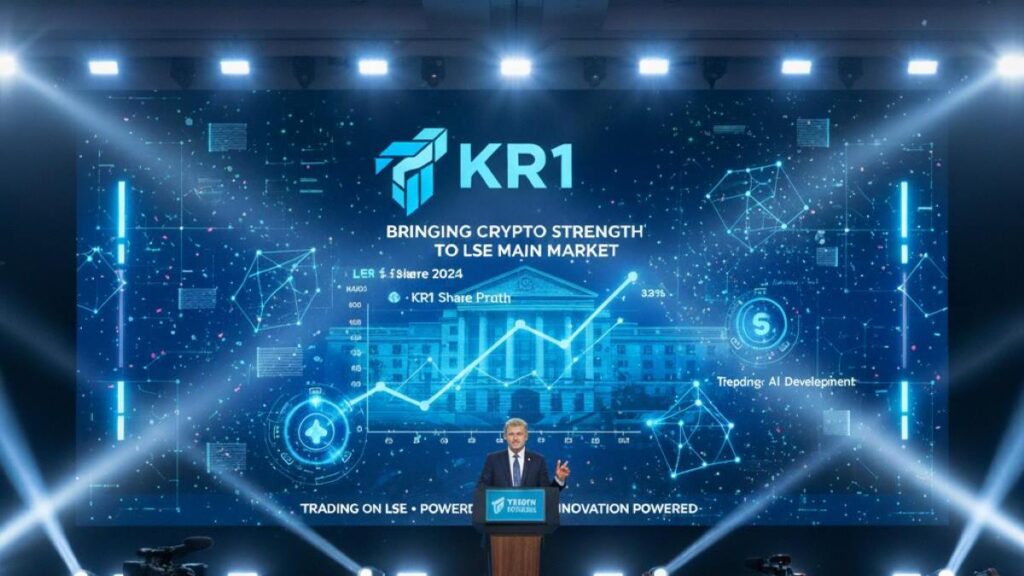TL;DR:
- KR1 moves from Aquis to LSE main market to become first fully recognized blockchain firm.
- Valued at $75 million, KR1 supports Ethereum, Polkadot, DeFi, and NFTs.
- Favorable UK regulations enhance blockchain adoption; Argo Blockchain delists highlighting strategic contrasts.
KR1, a crypto staking firm based in the Isle of Man, is preparing to shift its shares from the Aquis exchange to the London Stock Exchange’s main market. The move aims to position KR1 as the first fully recognized blockchain enterprise on the LSE, demonstrating its commitment to institutional credibility and market maturity. Managing director Keld van Schreven emphasized the need to strengthen the management team and engage an auditor to meet the LSE’s rigorous standards.
LSE Main Market Listing Could Inspire Other Blockchain Firms
KR1’s valuation reaches approximately $75 million, reflecting its robust portfolio of early-stage blockchain projects including Ethereum, Polkadot, DeFi protocols, and NFT marketplaces. Founded in 2014, the firm has supported over a hundred projects, locking positions in tokens to generate steady income flows for its stakeholders. The listing is expected to enhance visibility, potentially attracting other blockchain-focused firms to explore similar moves.

British regulatory developments are increasingly favorable for digital finance, as the FCA has approved crypto exchange-traded products for trading on the London Stock Exchange. Anticipated rulebooks and potential Bank of England flexibility on stablecoin asset caps further solidify the environment, enabling firms like KR1 to integrate blockchain operations into mainstream financial markets confidently.
The move contrasts with Argo Blockchain, which plans to delist from the LSE after six years. Argo’s departure highlights KR1’s commitment to growth, transparency, and adherence to regulatory standards, emphasizing the strategic advantage of entering the main market. KR1’s listing is seen as a milestone for blockchain institutionalization in London.
KR1’s transition marks a significant step in bridging cryptocurrency and traditional finance. By securing a position on the LSE main market, the firm demonstrates that blockchain ventures can meet institutional requirements, attract investors, and maintain compliance while continuing to support innovative digital assets. The shift signals a potential trend for other blockchain enterprises to seek similar recognition, fostering credibility and market trust across the sector.










